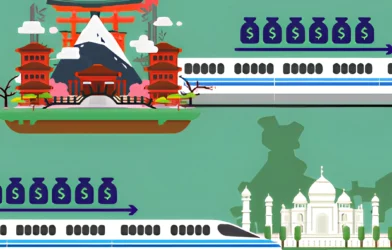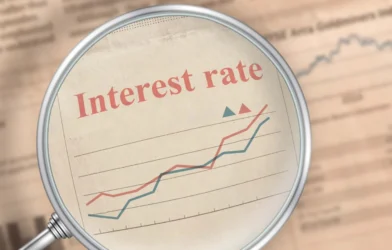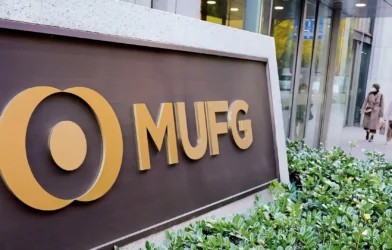Author: Aditya Pareek | EQMint | General News
Tokyo, November 4, 2025 — A major Japanese trade group representing the country’s leading creative publishers, including Studio Ghibli, has urged OpenAI to immediately stop using copyrighted works to train its artificial intelligence models without prior permission. The appeal was made in a formal letter from the Content Overseas Distribution Association (CODA) to OpenAI, as reported by TechCrunch.
The move comes just as OpenAI begins the rollout of its new Sora app — an advanced video-generation tool capable of creating hyper-realistic scenes from text prompts. CODA’s intervention signals growing resistance from Japan’s creative sector over what it views as the unauthorised exploitation of copyrighted material for commercial AI development.
CODA’s Stand Against AI Copyright Infringement
In its letter, CODA, which represents more than 30 Japanese publishers and studios including Studio Ghibli, Shueisha, and Toei Animation, demanded that OpenAI cease using copyrighted works belonging to its members for machine learning and data training purposes without explicit consent.
The organisation also warned that legal action could follow if OpenAI continues training its models on copyrighted data, describing the practice as a violation of Japan’s intellectual property laws.
“In Japan, prior permission is generally required for using copyrighted works. No rule allows someone to avoid breaking the law by asking for approval afterwards,” CODA said in its statement.
The letter reflects Japan’s increasingly firm stance on AI ethics and copyright, as creators and rights holders push back against what they see as “data harvesting without consent.”
The Studio Ghibli Controversy
The dispute gained momentum following a viral online trend earlier this year where users recreated images of themselves or their pets in the Studio Ghibli art style using OpenAI’s image-generation tools.
Even Sam Altman, CEO of OpenAI, participated by changing his profile picture on X (formerly Twitter) to a Ghibli-inspired avatar — a move that drew both enthusiasm and criticism online.
While the trend popularised OpenAI’s tools, it struck a nerve within Japan’s artistic community. Hayao Miyazaki, co-founder of Studio Ghibli and one of the most revered animators in the world, has long opposed the use of AI in art.
In a now-famous 2016 incident, when shown an AI-generated animation, Miyazaki reportedly said he was “utterly disgusted” and called it “an insult to life itself.” His views have since become symbolic of the broader skepticism in Japan’s creative industry toward generative AI.
A Growing Global Copyright Battle
The CODA letter adds Japan’s voice to an intensifying global debate about the legality of AI training on copyrighted material. Several media companies and publishers across North America and Europe have already filed lawsuits against OpenAI and its strategic partner Microsoft, alleging unauthorised use of journalistic and literary works to train AI models like ChatGPT and Copilot.
Among the key legal challenges:
- Canadian Media Coalition: In November 2024, several outlets including The Canadian Press, Torstar, Globe and Mail, Postmedia, and CBC/Radio-Canada filed suit against OpenAI for copyright infringement.
- The New York Times (US): Sued OpenAI in late 2023, accusing it of using millions of its articles without consent. A U.S. federal judge later allowed the case to proceed, noting it raised “substantial questions” about fair use.
- Alden Global Capital Group (US): Eight major newspapers, including the Chicago Tribune and Denver Post, filed similar lawsuits against OpenAI and Microsoft for allegedly reproducing their content in AI-generated summaries.
Collectively, these cases highlight the lack of legal clarity around AI training and copyright — a gap that both publishers and regulators are racing to address.
Legal Contrast: Japan vs. United States
At the heart of the controversy is how copyright law treats AI training data — an area where Japan and the United States diverge sharply.
In the United States, copyright law has not been updated since 1976, leaving courts to interpret AI training within the scope of “fair use.” This legal ambiguity has allowed AI companies to argue that training models on copyrighted data constitutes transformative use, not infringement.
A recent U.S. case involving AI startup Anthropic reinforced this uncertainty. The court ruled that training on copyrighted books did not violate copyright directly but fined the company for unauthorised copying of the works during the training process.
In contrast, Japan’s copyright laws are much stricter. CODA maintains that under Japanese law, training AI systems with copyrighted works without prior approval qualifies as infringement, regardless of whether the resulting outputs resemble the originals.
“The principle of ‘ask forgiveness, not permission’ may work elsewhere,” CODA noted, “but under Japanese law, it is unequivocally illegal.”
Cultural and Ethical Dimensions
Beyond legalities, Japan’s opposition to AI-generated art also reflects a deeper cultural perspective. The country’s art and animation industries are built on craftsmanship, human emotion, and philosophical depth — traits that many creators believe cannot be replicated by algorithms.
Industry veterans have warned that unrestricted AI training could erode creative originality, devalue human artistry, and undermine years of work invested by illustrators, animators, and storytellers.
“AI cannot understand the spirit that goes into hand-drawn animation,” said a senior producer at Toei Animation. “When machines are trained on our art without consent, it’s not innovation — it’s appropriation.”
OpenAI’s Position
OpenAI has not issued a formal response to CODA’s letter yet, though the company has previously stated that it uses a mix of licensed data, publicly available internet content, and proprietary sources to train its models.
In prior cases, OpenAI has argued that its data collection falls within fair use exceptions under U.S. law, and that the company is working to establish licensing agreements with publishers worldwide.
Earlier this year, OpenAI announced partnerships with several news organisations — including The Associated Press and Axel Springer — to use their content for training legally. However, Japanese publishers have not yet entered such agreements.
Implications for Global AI Development
CODA’s challenge could have far-reaching implications for global AI regulation. Japan, known for its strong intellectual property regime, could become the first major Asian country to take a legal stand against unauthorised AI training.
If the dispute escalates into court, it may set a precedent for how AI companies handle international copyright compliance — potentially forcing global players like OpenAI, Google, and Anthropic to localise their training datasets based on jurisdictional laws.
“This is more than just a copyright issue — it’s about creative sovereignty,” said Taro Fujita, a Tokyo-based technology lawyer. “Japan’s response may influence how AI ethics and copyright are regulated across Asia.”
Conclusion
The standoff between CODA and OpenAI underscores a critical moment in the evolving relationship between AI innovation and intellectual property rights.
As generative AI becomes more powerful — capable of producing lifelike videos, art, and music — the question of who owns the source material that fuels these systems is growing more urgent.
For now, Japan’s message is clear: creativity deserves consent. Whether OpenAI chooses cooperation or confrontation will likely shape the next phase of the global AI copyright debate.
For more such information visit EQMint
Disclaimer: This article is based on information available from public sources. It has not been reported by EQMint journalists. EQMint has compiled and presented the content for informational purposes only and does not guarantee its accuracy or completeness. Readers are advised to verify details independently before relying on them.









